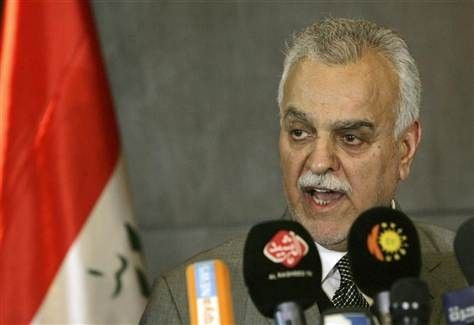Turkish PM: 'We Will Host Al-Hashemi As Long As He Wants'

Turkish Prime Minister Recep Tayyip Erdogan said Tuesday that Iraqi Vice President Tareq al-Hashemi can stay in Turkey as long as he wants; he will not be extradited to Iraq to face the death sentence imposed by Baghdad.
"We will host Hashemi in our country as long as he wants to remain in Turkey. We will not hand him over," Erdogan said to reporters in Ankara.
Al-Hashemi was convicted in absentia in connection with the death of a female lawyer and a brigadier-general on Sunday, and sentenced to hang. He is also charged with 150 other counts, including the organization of "death squads" following the 2003 US-led invasion to conduct hits on Shiite government officials and civilians.
Al-Hashemi, who is a Sunni Muslim, vigorously denies all these charges. His arrest warrant was issued a mere two days after U.S. troops left Iraq in December 2011, according to ABC.net.au. He fled the country shortly thereafter, arriving in Turkey by way of Kurdish Iraq, Qatar, and Saudi Arabia.
Erdogan made the point to reporters that al-Hashemi himself lost many relatives in the post-invasion sectarian violence, said The Australian. "There is no truth in the accusations against him. To the contrary, Hashemi has unfortunately lost family members in Iraq," Erdogan said.
"It is out of question for him to be involved in such acts."
Al-Hashemi himself has called his conviction and trying "a theatrical campaign" by a "politicized judiciary." Al-Hashemi is known to be heavily critical of Nouri Al-Maliki, Iraq's Prime Minister, a Shiite Muslim, and has accused him of trying to consolidate power for himself and his Shiite compatriots.
Iraq's government is designed to be a power-sharing system between the Sunnis, Shias, and Kurds.
The conviction also highlights the sectarian tensions that have been re-emerging of late in Iraq, with more attacks targeted at specific religious groups: the day al-Hashemi's verdict was handed down, a car bomb in a Shiite neighborhood left more than 80 people dead. And Hashemi's trial, said Al-Jazeera, "has fuelled Sunni Muslim and Kurdish resentment against al-Maliki."
© Copyright IBTimes 2025. All rights reserved.






















